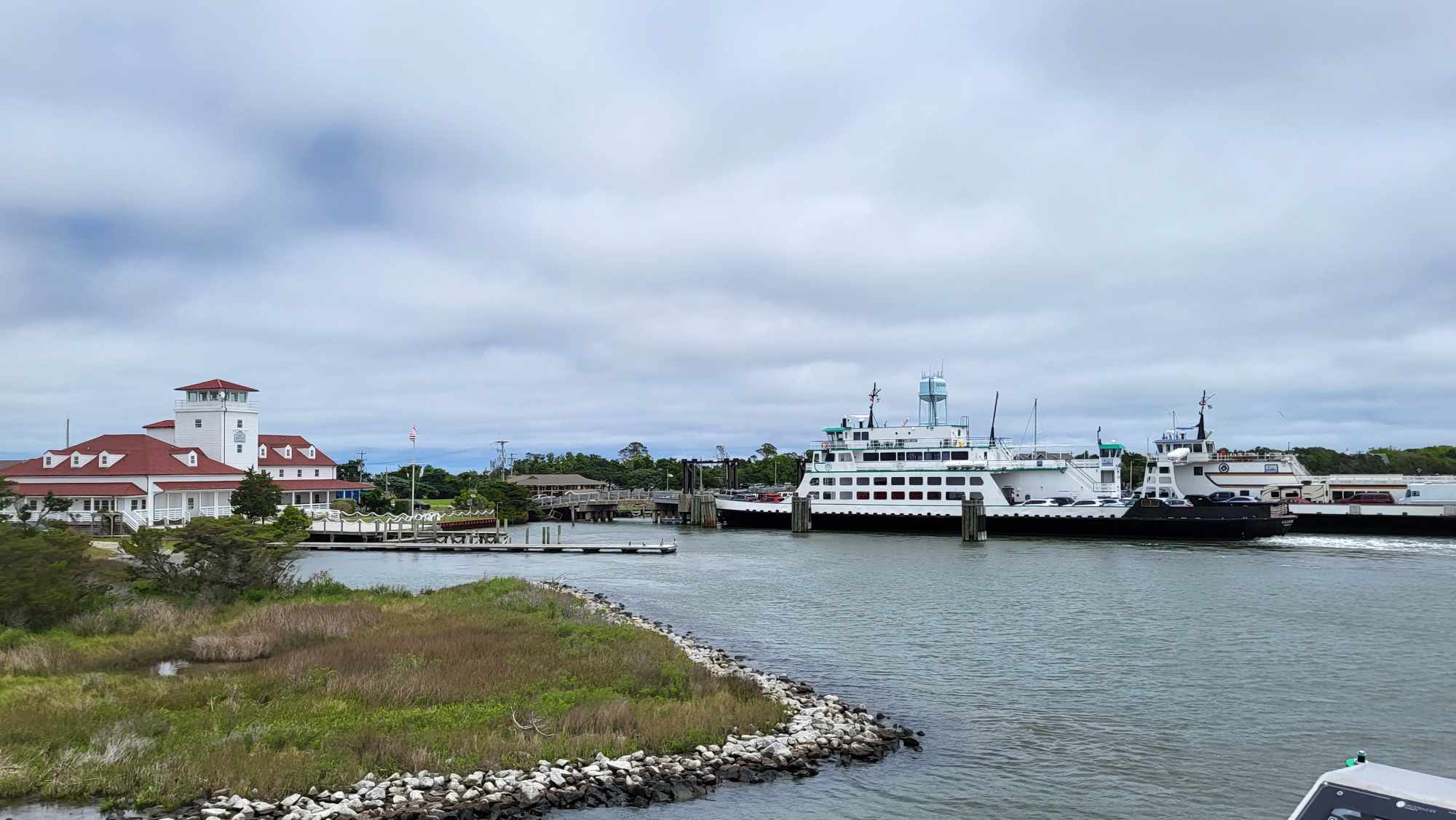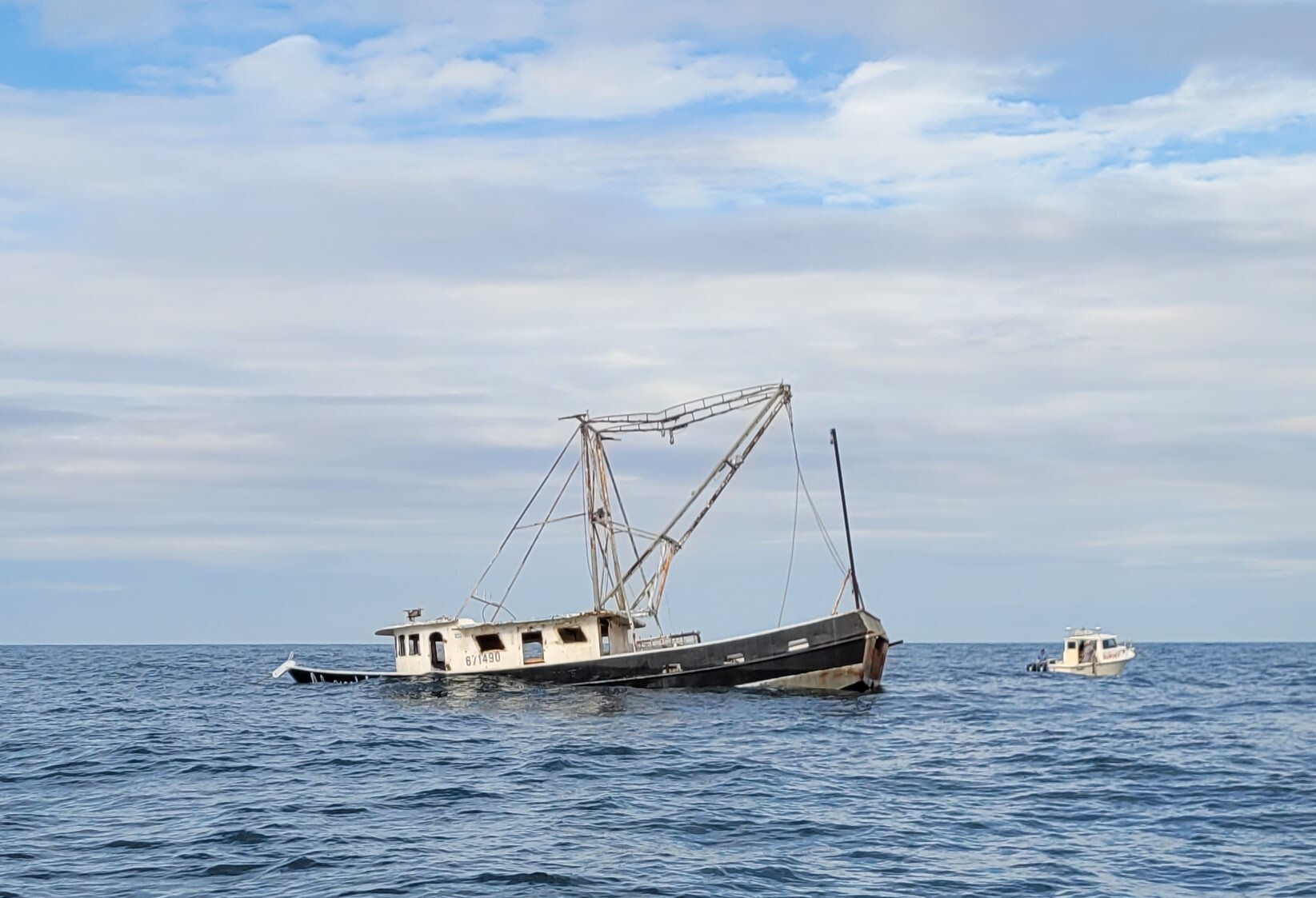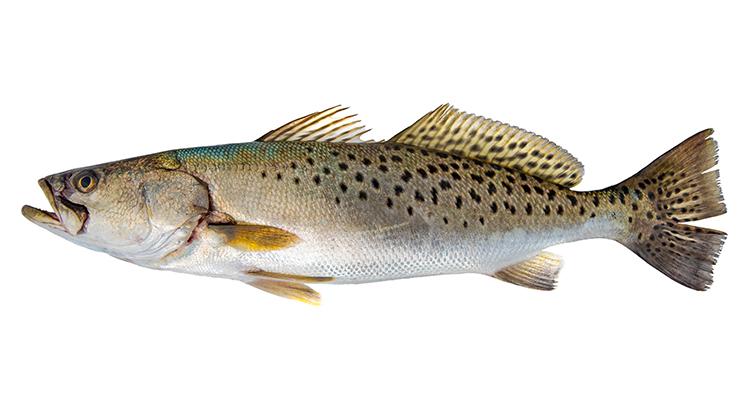UPDATE: Watermen plan a show in force in Raleigh to oppose gamefish bill
Watermen in North Carolina plan a show of force in Raleigh on Monday, when members of the public have been invited to give feedback on a proposed gamefish bill that would make specked trout, red drum, and estuarine striped bass no longer available to consumers and commercial fishermen.
“Folks are very concerned about this legislation,” said David Hilton, president of the Ocracoke Working Watermen’s Association. “All the leaders in the community are definitely calling all the fishermen to go.”
Hilton said the association has combined forces with North Carolina Watermen’s United and Carteret County Fishermen’s Association to rally opposition to the bill and to educate people about the negative consequences to the market, the industry, and the resource.
“It hurts seafood consumers,” he said. “It hurts Eastern North Carolina in a disproportionate way because those fish are relied on – even in small numbers. That’s the money that gets recycled in the local community in the wintertime.”
Known as the 2013 Fisheries Economic Development Act, House Bill 983 would designate the three fish as gamefish, which would effectively allocate all the catch to recreational anglers. The fish would have to be caught only by hook-and-line, and commercial sale would be prohibited.
Nearly all of the bill’s sponsors represent inland counties, and coastal legislators were not consulted before the bill was introduced, said Rep. Michael Speciale, a Craven County Republican.
“I am actively fighting this,” he said, adding that he has been flooded with nasty, sometimes threatening, e-mails from members of recreational fishing groups.
When he read up on the legislation, Speciale said it was clear to him that the bill was not backed by science. What it boils down to, he said, is lawmakers choosing sides for control of a public resource.
“To me, this is a liberty issue,” he said. “It’s not government’s place to take away a public trust from a segment of people because they see a perceived economic benefit.”
Speciale said that he initially asked for an opportunity to allow representatives from the recreational and commercial fishing industries to discuss the issue, and a meeting was set for noon on Monday. But then he said it was moved to 1:30 p.m. and changed to a public forum, which he fears could become “a numbers game” counting which side can get more bodies in the room supporting their position. Speakers will each be allowed two minutes.
The smaller meeting would have been more productive, Speciale said, but bill supporters “knew if they sat down and discussed it logically, they wouldn’t have a leg to stand on.”
The bill has been assigned to the Commerce and Jobs Development committee, of which Speciale is a member. He said of the 30 or so legislators he has talked to about it, none are in support.
“I’m going to try to kill it before it gets to the House floor,” he said. “There are a lot of people on both sides and there are threats on both sides. If I lose votes, I don’t care . . . I can walk away with my integrity intact.”
Proponents with the North Carolina Coastal Conservation Association, a nonprofit recreational fishing group that is pushing the bill, contend that gamefish designation would benefit North Carolina by creating more jobs and tourism revenue because more anglers would come to the state.
According to information on the CCA Website, in 2012, only 41 commercial fishing “participants” had $5,000 or more in landings of the three fish. The group’s contention is that gamefish status would help end overfishing and would enhance the resource.
“It is designed to help foster a recreational fishery currently worth exponentially more in dollars and jobs than the commercial fishery,” the site said.
In a statement released on Thursday by the North Carolina Division of Marine Fisheries, the division said that no biological evidence exists that shows that game fish designation would improve stocks of the three species or guarantee sustainable harvest in the future. To the contrary, the statement said, the species’ fishery management plans adopted by the state have already achieved sustainable harvest “while providing fair and equitable allocation of these fishery resources.”
Specifically, it said, the status of the red drum population is as good or better than other South Atlantic states that manage exclusively for the recreational fishery.
Recreational anglers have caught about 80 percent of the total harvest of red drum in North Carolina since 2010 and about 70 percent of spotted sea trout for the last 10 years, according to the division. Commercial fishing accounts for about 78 percent of estuarine striped bass landings in most of North Carolina.
If the harvest and possession of the three species were outlawed, the inevitable outcome would be an increase in discarded fish because commercial fishermen would not be allowed to keep bycatch of the species. Since the discards wouldn’t be counted, stock assessments would become inaccurate and conflicts between the fishing groups would likely increase.
“The growth in recreational fishing activity in North Carolina is already consistent with, and at times even greater than, other South Atlantic states that have gamefish and/or net bans,” the statement said, “calling into question the need or capacity of North Carolina to accommodate even more increased recreational activity while maintaining viable fish stocks.”
Hilton said that even though there may be disagreement about the science of fisheries management, the division deserves credit for its management of the stocks of the three species. He also gives high marks to Rep. Paul Tine, a Dare County Democrat, for his efforts in fighting the gamefish status.
Ocracoke watermen will be attending the meeting, he said, as well other supporters who appreciate the value of wild caught local seafood.
“It’s like a team. Every person is playing a role,” he said, referring to those working to defeat the bill.
Carteret County is sending a busload of people, and others plan to carpool. The bus will also stop to pick up folks in Craven, Pamlico, and Onslow counties.
“I’m expecting a whole lot of people to go,” said Rusty Taylor, a commercial fisherman from Harker’s Island.
Dare County watermen will also be represented at the meeting, said Jamie Reibel, a charter boat captain and commercial fisherman from Manteo who is a member of the Dare County Commission for Working Watermen.
Since bad weather conditions lately have kept everyone off the water, he said that if it’s a pretty day on Monday, a lot of watermen would need to fish, so it’s hard to predict how many will be in Raleigh.
“Right now, I’d say 50 people, rain or shine,” he said. “If it’s nasty weather, there could be hundreds.”
Reibel said that he definitely plans to be there to make his views known and to counter the lobbyists and campaign donors.
“There’s nobody for it,” he said about the gamefish measure, “unless they’ve been paid to be for it.”
FOR MORE INFORMATION
Click here to read a statement from the North Carolina Division of Marine Fisheries on the gamefish bill.
For more information on HB 983 or to sign the online petition, please go to: http://www.change.org/petitions/nc-general-assembly-keep-local-seafood-on-nc-dinner-plates-oppose-nc-house-bill-983.
The public forum will be held on Monday, May 6, 1:30 p.m. at the Legislative Office Building, 300 N. Salisbury Street, Raleigh.








